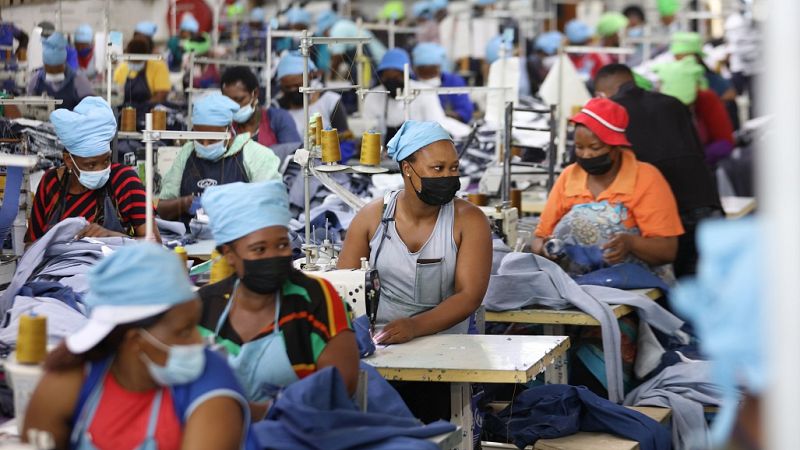Lesotho: textile industry hangs in the balance following new U.S. tariffs

If you've ever purchased jeans from well-known American brands such as Levi’s or Wrangler, it's likely that they were produced in Lesotho, a small nation in southern Africa.
The textile industry is vital to Lesotho's economy, providing jobs for approximately 12,000 individuals and sending around 75% of its products to the United States.
However, this situation may change following the 50% tariff imposed by U.S. President Donald Trump on imports from Lesotho.
Trump claims that Lesotho imposes a 99% tariff on American goods, a figure that the Lesotho government disputes, stating they are unaware of how the U.S. arrived at that number.
Officials did not disclose the actual tariffs on U.S. products during a recent announcement.
As a result, workers are anxious about potential job losses, fearing that rising export costs will deter American consumers.
Small business owner Palesa Makae cautioned that many businesses could shut down, stating, "If that happens, some of the women and men who work in those factories will be out of work."
According to the Office of the U.S. Trade Representative, bilateral trade between the U.S. and Lesotho reached $240.1 million in 2024.
In addition to clothing, Lesotho also exports diamonds and various other products.
The World Bank classifies Lesotho as a lower-middle-income country, with nearly half of its 2.3 million residents living below the poverty line and a quarter facing unemployment.
Lesotho’s Trade Minister Mokhethi Shelile announced that the country will seek new markets and leverage the Africa Continental Free Trade Area to boost exports to more favorable destinations within Africa. "We are not going to die. We will diversify and explore other markets," he affirmed.

